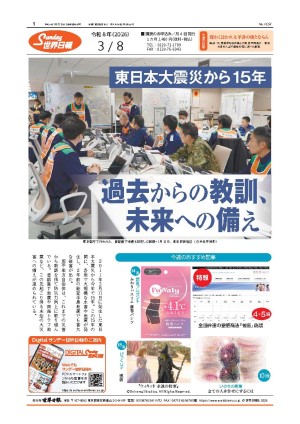明確な最有力候補不在の米民主党指名争い Democrats lack clear front-runner
米民主党の大統領候補指名を目指す者たちは、夏に開催される全国党大会で候補を決定する「ブローカード・コンベンション(仲裁党大会)」または「コンテステッド・コンベンション(争われる党大会)」に直面する可能性が現実味を増している。
アイオワ州で行われる最初の党員集会まで4週間となったが、候補者たちは指名争いが3月初旬の「スーパーチューズデー」を越え、ミルウォーキーで開催される7月の党大会まで続く長丁場になることを見据えている。どの候補も指名に必要な代議員約4000人の過半数を獲得できなかった場合、党大会の舞台裏で取引が行われる可能性がある。
...【全文を読む】







